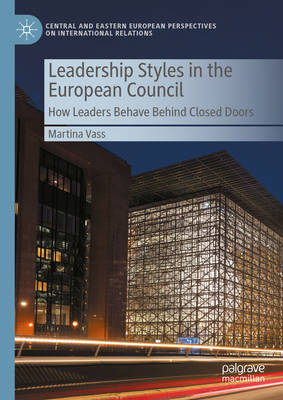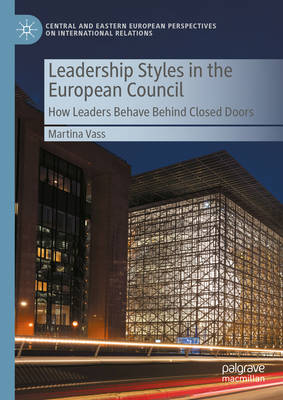
- Afhalen na 1 uur in een winkel met voorraad
- Gratis thuislevering in België vanaf € 30
- Ruim aanbod met 7 miljoen producten
- Afhalen na 1 uur in een winkel met voorraad
- Gratis thuislevering in België vanaf € 30
- Ruim aanbod met 7 miljoen producten
Omschrijving
Using the example of Werner Faymann, Dalia Grybauskaité, Angela Merkel, Viktor Orbán and Mark Rutte, the book examines the impact that the European Council's environment has on leadership styles and the impact of leaders on the institution's decision-making during the financial and debt crisis, the Ukraine crisis, and the migration crisis (2010-2016). It presents domestic factors affecting the choice of leadership style nationally, finding cooperative styles are best suited to the European Council, as its structure relies on negotiated consensus. The European Council's environment has three effects on leadership styles and decision-making: socialisation towards cooperation, compromise making, and Europeanisation. The book provides an in-depth insight into how leaders behave among their peers behind closed doors.
Specificaties
Betrokkenen
- Auteur(s):
- Uitgeverij:
Inhoud
- Aantal bladzijden:
- 294
- Taal:
- Engels
- Reeks:
Eigenschappen
- Productcode (EAN):
- 9783031736209
- Verschijningsdatum:
- 4/02/2025
- Uitvoering:
- Hardcover
- Formaat:
- Genaaid
- Afmetingen:
- 158 mm x 211 mm
- Gewicht:
- 571 g

Alleen bij Standaard Boekhandel
Beoordelingen
We publiceren alleen reviews die voldoen aan de voorwaarden voor reviews. Bekijk onze voorwaarden voor reviews.









